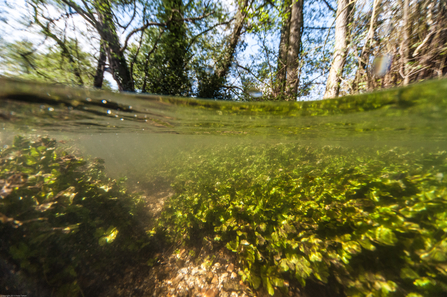Hertfordshire and Middlesex Wildlife Trust has welcomed the publication of the Chalk Stream Restoration Strategy 2021, drawn up by a group of environmental organisations including The Wildlife Trusts and the Department for Environment, Food and Rural Affairs. The report, produced by the Catchment Based Management Approach (CaBA) Chalk Stream Restoration Group sets out a series of recommendations across the interlinking pressures of water quality, water quantity, and habitat restoration.
Created by CaBA partners including Defra, the Environment Agency and Natural England, the strategy outlines the current issues threatening chalk streams in England and what must be done to protect the three key indicators of ecological health: water quantity; water quality; and physical habitats.
Sarah Perry, Living Rivers Officer for Herts and Middlesex Wildlife Trust said:
“The recommendations of this strategy will be pivotal for improving the state of our chalk streams, of which 10% of the global number are in Hertfordshire. The streams in Hertfordshire are incredible habitats for wild species such as water voles and watercress, but they are suffering every year and need better protection if they are to survive in the future. Herts and Middlesex Wildlife Trust work hard with our partners to care for these precious habitats and we are very pleased to see this joined-up approach to the national problem.”


